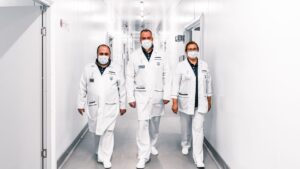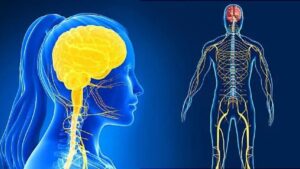Ask any student at Touro College of Osteopathic Medicine (TouroCOM) what course keeps them up at night, and one word will come up again and again: Pathology.
It’s the study of disease — not just what goes wrong in the body, but how, why, and in devastating detail. From dissecting cellular injury to memorizing hundreds of disorders, Pathology is often described as the course that separates the curious from the committed.
But is it truly the hardest course at TouroCOM?
We asked students — and they didn’t hold back.
“It’s Like Drinking From a Firehose” — Students Tell All
Third-year student Jordan put it bluntly:
“I’ve never studied so much in my life — and still felt behind.”
Many TouroCOM students agree that Pathology isn’t just difficult because of the volume of material — it’s the depth, the clinical reasoning, and the relentless pace.
Unlike anatomy, which is largely memorization, or physiology, which is concept-driven, pathology throws both at you — and demands that you apply them clinically.
“It’s not just ‘what is a disease?’ It’s, ‘Why did it happen? What does it look like? What labs would you order? What are the complications?’ You’re basically thinking like a doctor while still trying to become one.”
Not Just Reading — It’s Interpreting, Connecting, Diagnosing
What makes Pathology at TouroCOM especially intense is the way it’s taught: professors don’t spoon-feed answers. Instead, they push students to develop the critical thinking skills they’ll need on rotations and in residency.
But reaching that point requires serious effort.
Many students report spending 20-30 hours a week reviewing pathology alone — and still struggling.
Why Pathology Feels So Overwhelming (But Also So Rewarding)
So, what exactly makes pathology feel harder than other courses?
- Sheer Volume – Hundreds of diseases, pathways, and histological images
- Integration Across Systems – You can’t study it in isolation; it touches everything
- Exam Format – Case-based questions that require clinical reasoning, not rote memorization
- Emotional Load – Learning about death, cancer, and suffering daily isn’t easy
But here’s the twist: many students also say it’s the most rewarding course they’ve taken.
“It Destroyed Me, But It Made Me Better”
If you scroll through TouroCOM Reddit threads or talk to alumni, you’ll see a recurring theme: Pathology is a beast — but it’s worth it.
Some call it a mental marathon. Others, a professional awakening.
Many point to the support systems on campus — peer tutoring, recorded lectures, group study sessions — that helped them survive. Others relied on external resources like Pathoma, Goljan, or Boards & Beyond.
But no matter the method, the message is clear: you don’t get through Pathology alone, and you don’t get through it unchanged.
Is It Really the Hardest? Depends Who You Ask
While many vote for Pathology as the toughest course at TouroCOM, others argue that Physiology or Pharmacology deserve the crown. It all depends on learning style.
- Visual learners may thrive in Anatomy
- Logical thinkers may prefer Physiology
- But Pathology? It demands everything — memorization, logic, emotional stamina, and clinical intuition
That’s why, even if it’s not the hardest course on paper, it often feels like the most demanding — and the most defining.
Final Thoughts: Surviving Pathology at TouroCOM
So, is Pathology the hardest course at TouroCOM?
Maybe.
What’s certain is this: it’s not just a class — it’s a crucible. It challenges your brain, tests your discipline, and lays the foundation for everything that comes next. If you survive it, you come out sharper, stronger, and more prepared for the real world of medicine.
And that’s something no multiple-choice test can measure.
FAQs
Q1: How can I prepare for Pathology at TouroCOM?
Start early, use visual aids (like histology images), and supplement with trusted resources like Pathoma or Boards & Beyond.
Q2: Is Pathology more important than other courses?
All courses matter, but pathology connects basic science to clinical reasoning — it’s the bridge between the classroom and the hospital.
Q3: Do I need to memorize everything in Pathology?
No — but you do need to understand patterns, mechanisms, and how to apply knowledge to real-world cases.




